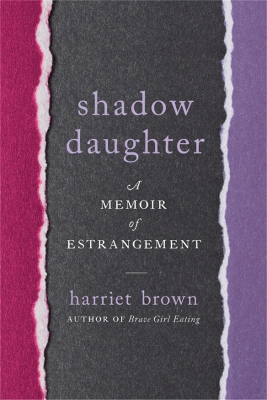Reviewed by lovelybookshelf on
This format works really, really well. This is a tough topic because of intense “family first” social norms and ideas around “forgiveness” that often end up pressuring people into accepting abuse, especially covert abuse. The way Brown has laid out her book makes the presentation of personal stories powerful, while giving just enough distance so the reading doesn’t become too overwhelming emotionally for those who have been/are going through family estrangement.
Brown also takes a deeper look at forgiveness—what it is, what it isn’t, what it means, what it doesn’t. But she doesn’t try to present a definitive answer. Instead, she offers up a number of perspectives for readers to think about on their own.
It’s important to note that Shadow Daughter covers all sorts of reasons for estrangement, and doesn’t play the “pain Olympics” in any way. It’s quite validating, and truly a healing read.
Reading updates
- Started reading
- 5 November, 2018: Finished reading
- 5 November, 2018: Reviewed
